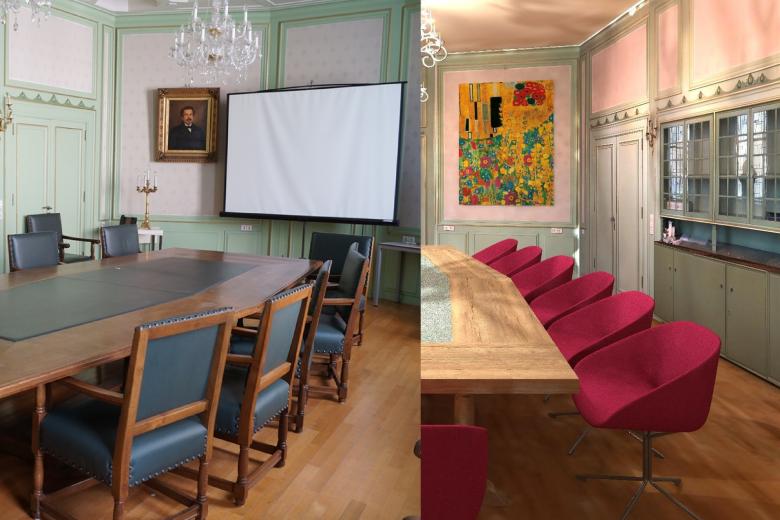Beter geen parlementaire immuniteit van Nederlandse leden van het EP
Vorige week besloten de leden van het Europees Parlement, op verzoek van Franse rechtsvervolgingsdiensten, met een grote meerderheid om de parlementaire immuniteit van Marine Le Pen op te heffen. (Alleen beschikbaar in het Engels)
The waiver enables criminal proceedings against Le Pen for ‘disseminating images likely to undermine human dignity’ in relation to a tweet by Le Pen that featured graphic images of the beheading of American journalist James Foley and other violent images.
While the decision of MEPs to waive Mrs Le Pen’s immunity should be applauded, the event highlights the discriminatory nature of the system of immunities enjoyed by Members of the European Parliament: had Mrs Le Pen been a Dutch MEP, she would potentially not have been immune in the first place.
MEPs benefit from a complex immunity arrangement dating back to an era, prior to 1979, when the Parliament was not directly elected but was composed of delegates from the national parliaments of Member States. This system is laid down in articles 8 and 9 (formerly articles 9 and 10) of Protocol No. 7 to the Treaty on European Union.
According to article 8, MEPs “shall not be subject to any form of inquiry, detention or legal proceedings in respect of opinions expressed or votes cast by them in the performance of their duties.” According to CJEU case law, this is “in essence intended to apply to statements made by those members within the very precincts of the European Parliament.”[1] It should thus be clear that Mrs Le Pen’s tweets are not covered by this primary layer of European parliamentary immunity.
The more complex and potentially discriminatory layer of immunity stems from article 9 of Protocol no. 7, whose relevant parts read as follows:
Article 9
During the sessions of the European Parliament, its members shall enjoy:
a. in the territory of their own State, the immunities accorded to members of their parliament;
b. in the territory of any other Member State, immunity from any measure of detention and from legal proceedings.
Immunity shall likewise apply to members while they are travelling to and from the place of meeting of the European Parliament. […]
The problem here is that the scope of the immunities enjoyed by national parliamentarians differs greatly between Member States. For instance, French parliamentarians cannot be deprived of their liberty without prior leave by their chamber (unless they are caught red-handed while committing a crime) and criminal proceedings against them can be halted by the chamber. Members of the Greek parliament cannot be criminally prosecuted at all without parliament’s explicit permission (which is not often given). Neither Member State requires any material link between the act for which prosecution or arrest is sought and the exercise of the parliamentary mandate.
Things are very different in the Netherlands or the UK, where whatever a member says in parliament is immune, but nothing beyond.
We must therefore assume that a Dutch MEP who tweets images of extreme violence, engages in hate speech, or commits a gross insult would not enjoy any immunity pursuant to article 9 of Protocol No. 7, unless they were lucky (or smart) enough to do so abroad or on a train to Brussels or Strasbourg.
This is obviously problematic. First, ever since MEPs are no longer delegates from national parliaments but directly elected and not expected to solely represent their own Member State, the difference in legal status created by the immunity system is legally unjustifiable. Second, because it makes no sense, since tweets, interviews and other utterances cross borders more quickly than even the most travel-happy MEP. But since the immunity rules are laid down in a TEU Protocol and changing them would hence require a Treaty amendment, the situation is unlikely to change soon. Until it does, MEPs prone to illegal utterances had better not be Dutch.
[1] Aldo Patriciello, CJEU 6 September 2011, case C-163/1, para. 12.
This blog is published on Law Blogs Maastricht
S. Hardt
Assistant professor of (comparative) constitutional law

-
De bescherming van de klokkenluider van D.C. is wassen neus
De impeachmentprocedure tegen president Trump is volop in het nieuws. De klacht van de klokkenluider over het gebeuren rondom de gunst die Trump vroeg in een kwestie rondom zijn politieke tegenstander Biden in een telefoongesprek op 25 juli 2019 met de President van Oekraïne staat daarbij centraal...

-
Jam v. International Finance Corporation. Het U.S. Supreme Court over de immuniteit van een internationale organisatie
Op 27 februari jl. deed het US Supreme Court een interessante uitspraak over de immuniteit van een internationale organisatie. Het gaat om de International Finance Corporation (IFC), een onderdeel van de World Bank Group. 184 staten, waaronder India en de VS zijn aangesloten. Deze organisatie...

-
Blog van de decaan aflevering 15: opening van de bestuurskamer en de alumniwand. En: help mee om een naam te geven aan onze onderwijsgroepskamers!
Gisteren werden onze Bestuurskamer, gerestyled naar een ontwerp van Margarita Gaier, en de Alumniwand feestelijk geopend. Binnenkort zullen onze onderwijsgroepskamers van een naam worden voorzien: iedereen wordt gevraagd om mee te helpen bij de keuze van de namen.
